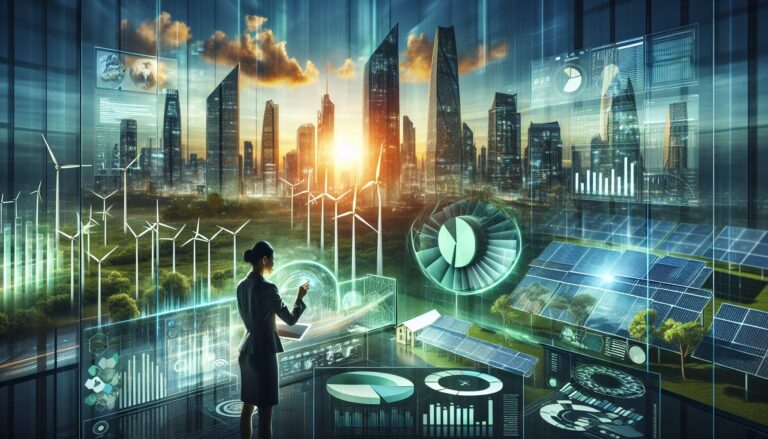The world is at a crossroads, grappling with the challenges posed by rapidly changing environmental trends. As the business realm takes center stage, it becomes vital to analyze the implications of these trends on our future. In this article, we delve into the interconnected environmental events and trends that shape our world today, and explore their broader implications for the business landscape.
One cannot overlook the fact that the current state of the environment is in jeopardy. Climate change, deforestation, and resource depletion have become critical issues that demand immediate attention. The increasing frequency and intensity of natural disasters have been attributed to these underlying environmental trends, leaving communities devastated and economies disrupted. It is imperative for businesses to understand these dynamics to mitigate risks and maintain long-term viability.
The interconnectedness of environmental events cannot be underestimated. Changes in temperature patterns have led to the rising sea levels, posing a threat to coastal cities and island nations. This has profound implications for businesses operating in these areas, including tourism, marine industries, and infrastructure development. Moreover, the loss of biodiversity not only disrupts ecosystems but also impacts industries reliant on agriculture and pharmaceuticals.
Expanding our perspective, the demand for sustainability has gained momentum. Consumers are becoming more conscious of their environmental footprint, which directly influences their purchasing decisions. As a result, businesses that embrace sustainability, such as those reducing carbon emissions and promoting eco-friendly practices, gain a competitive advantage. Additionally, international regulations and policies are increasingly focusing on environmental conservation, creating a supportive framework for businesses committed to sustainable practices.
The implications for businesses that fail to adapt are severe. From reputational damage to legal challenges, companies that neglect environmental responsibility face substantial risks. Moreover, the increasing scarcity of resources can disrupt supply chains, leading to higher costs and decreased operational efficiency. Businesses must adapt to this new reality and seize the opportunities presented by sustainable practices.
In the coming years, the business landscape will witness a paradigm shift. Organizations that integrate sustainability into their core strategies will thrive, while those that resist change will be left behind. Emerging technologies, such as renewable energy sources and circular economy models, offer promising avenues for businesses to reduce their environmental impact and enhance profitability.
However, addressing the environmental challenges requires collaboration at various levels. Governments, businesses, and consumers must unite in their efforts to foster sustainable practices. By creating a conducive environment that encourages innovation, research, and development, we can ensure a brighter future for both businesses and the environment.
In conclusion, navigating the complexities of the changing environment is a crucial task for businesses. Recognizing the interconnectedness of environmental events fosters a deeper understanding of their broader implications. Embracing sustainability and adapting to the evolving landscape is not just a moral imperative, but a strategic necessity. By prioritizing sustainable practices, businesses can secure their long-term viability while actively contributing to the preservation of our planet. The time for action is now, and the future of business depends on our ability to embrace sustainable solutions.

